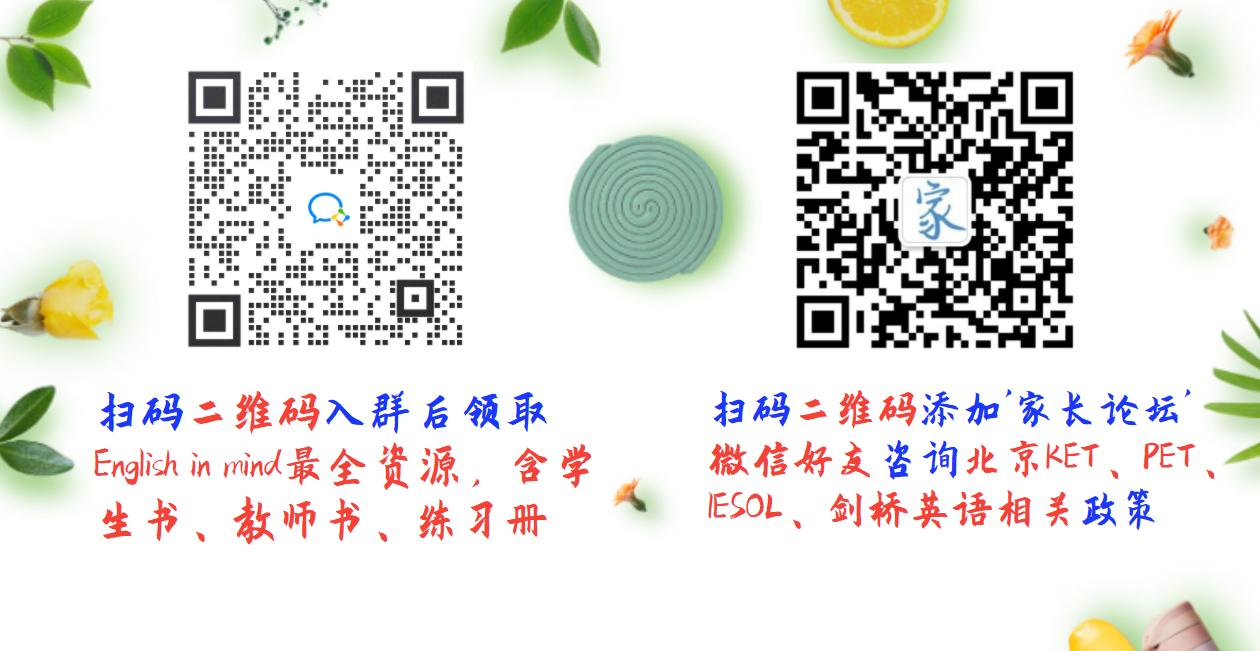教学研究 | EIM2 Unit 5 Culture in Mind


Teaching Plan
Teaching material:
EIM2 Unit5 Culture in Mind A quiz: How old do you have to be?
Grade: Junior 2
Teacher: Cai Yun, NFLS
Teaching objectives:
By the end of the class, students should be able to:
1. grasp new words and phrases in this quiz;
2. use listening skills to get the answers;
3. make comparisons in terms of culture and express their opinions;
4. write a short passage combining facts and opinions.
Teaching procedures:
Step 1: Lead in: Facts about You
Discuss facts about you and lead in new words and phrases in the quiz.
1. I’m not allowed to go to my friend’s house alone.
2. My mum let me buy fancy earrings, but I’m not allowed to have my ears pierced.
3. My parents don’t allow me to have a girlfriend unless I get top three in my grade.
Step 2: Before-listening prediction
Try to predict the statements according to what you know, and explain the reasons.
Step 3: While-listening
Listen to the tape twice:
1. Do T or F statements.
2. Fill in the blanks to find out more details.
3. Compare facts in foreign countries and facts in China, express your own opinions.
Step 4: Group Work
Make suggestions about laws in China in the NPC, and write a short passage.
课件分享:

















A QUIZ: How old do you have to be?
Are you fed up with your parents telling you what to do? Tired of them grounding you because you got home late? Counting the days until you come of age? Ok, so you’re pretty normal!
But did you know that in some countries you are allowed to do some grown-up things earlier than in other countries? Have a go at this quiz—you might be surprised at a couple of these facts!
1. In Britain, you have to vote when you’re 18 years old.
2. In Brazil, you’re allowed to vote when you’re 16 years old.
3. In the UK and most states in the USA, you have to be at least 21 to get a tattoo. In Arizona, USA, you’re allowed to get a tattoo when you’re only 14.
4. In Mississippi, USA, you aren’t allowed to get married without your parents’ permission until you’re 30.
5. In the UK, you can have a bank account at the age of seven.
6. In Japan, girls are free to get married when they’re 18, and boys when they’re 16.
7. In the USA you’re allowed to drive a car when you are 18, but you’re not allowed to fly a glider plane until you turn 21.

在上这节课之前,我粗略地了解了一下班上孩子们对于青少年希望做成年人的事情的观点,发现绝大多数的孩子们三观出乎意料地“正”。他们中的绝大多数人认为:青少年在未成年之前不应该做成年后才能做的事情,比如抽烟、喝酒、纹身、去酒吧和交男女朋友等等。而且很多孩子觉得自己跟父母肯定会有意见相左的时候,但绝不会因为观点不同而跟父母产生冲突,而是觉得父母对于自己行为上的约束是有道理的,什么年纪就应该做与之相对应的事情。也就是说,课文之中出现的一些情况(如: be fed up with your parents telling you what to do, be grounded because you got home late, counting the days until you come age等等)并没有发生在我们班级的同学身上。那么在这种情况下,如何能另辟蹊径把这一课上好呢?
首先,我整理了一下学生在前一节课用let sb do 和allow sb to/ be allowed to do造的句子,发现这些facts既有趣又跟我们的课文内容相关联,可以用来导入这节听力课的生词和短语,而且利用同学们平时造的句子来“以事实说话”,大大地激发了同学们学习这课的兴趣。
其次,在做听力的过程中,还是要引导学生运用听力技巧来获得正确答案的。我的处理方式是先让学生根据自己已有的知识来预判书上的facts是否正确,然后再让他们来听,并记录细节内容。
然后,在听完录音、核对好听力原文的细节之后,将不同国家的法律规定与中国的实际情况做比较,联系中国国情,分析和思考产生这些不同的法律规定的深层次原因,在了解国外法律事实的同时也了解中国的法律事实,鼓励学生从历史文化层面解释这些法律差异。
最后,综合学生所学的所有法律事实和得出的个人观点,让学生在虚拟“两会”中对我国现有的法律规定提出修改意见,写一篇小短文。
当然对于此课的设想是完美的,自己对于这些设想的实施却并不完美。比如,李爱云老师在本节课后交流时提到的教师对于学生的追问,我就做得还不够。又比如李老师提出我针对如何写proposal,可以在输出前带着学生从内容到结构到语言搭建一些支架,这样输出效果会更好。我因为怕学生来不及写,跳过了一些写前的讨论,处理得略显生硬了。尚媛媛老师也建议我可以利用课本上的Facts和学生提供的Facts做一些比较,培养学生的文化意识,我觉得这也是一个很好的建议,以后会注意。
以上这些是我在课后的思考。曾经在同事那里听过这样的话:“The mediocre teacher tells. The good teacher explains. The superior teacher demonstrates. The great teacher inspires.”她说做最后一种老师是她的目标,当时我十分感动。虽然目标尚未达成,但所幸我们一直在路上。
(执教老师:蔡韵)

NO.4
课后点评
蔡韵老师的这节听力课给我的整体印象一个字:实。
1. 引入部分蔡老师从学生的实际情况入手。通过复习be not allowed to do sth展开话题,介绍各自的家规:在达到某一条件前不可以做某事。这一话题设计根据学生实际出发,能激发学生参与欲望。别的学生也都有一颗“八卦”之心,想要了解别人家的情况,听到有趣、意外的回答,会心一笑。
2. 根据家规引导出国法,过渡自然。在判断所给句子正误这一环节,蔡老师给足学生时间解释说明,这是这节课中我最爱的一个环节。学生利用所给信息、自己已有的背景知识进行合理推理、判断,时不时碰撞出思想的火花。在判断美国人多大可以驾驶汽车或滑翔机时,有同学说:据我了解美国各个州的法律对抽烟、喝酒等的年龄规定是不一样的,因此非常有可能各个州对驾照的获取的年龄限制也不一样,所以我们无法笼统的说在美国需要达到什么年龄才可以拿到驾照。在判断日本人多大可以结婚时,有同学说:我对日本相关法律不太了解,但根据中国男子法定结婚年龄比女子要大的法律来看,日本也应该如此。我不禁惊叹于初二学生的逻辑思维,他们的回答有理有据,得体到位。由此可见,蔡老师利用教材这一抓手,把平时的思维品质训练落到实处。
3. 听力材料利用充分。蔡老师没有仅仅满足于书上设计的判断正误的题型,因为这只能获取有关的表面信息。她在此基础上设计了填空形式,让学生关注一些固定短语。长此以往,学生必能构建不同词汇语义网,积累词块,最终做到对词语的内化和灵活运用。在蔡老师的课堂上,语言知识的学习扎实有效。
(点评老师:余卫星,曾获得江苏省高中英语优质课评比一等奖、全国二等奖;全国外语教学名师,南外学术委员会委员,李爱云工作室成员。)

添加 家长论坛微信



全部 0条评论